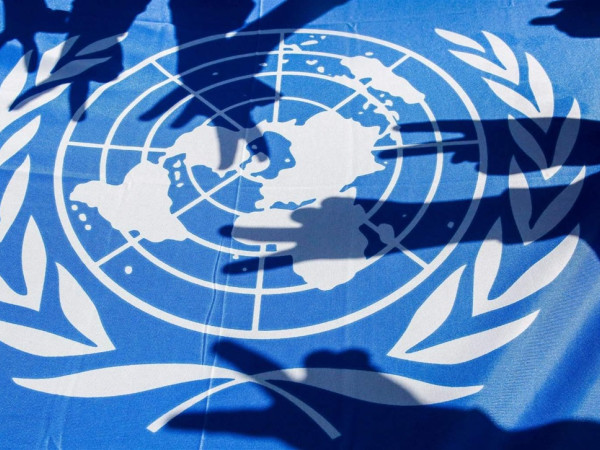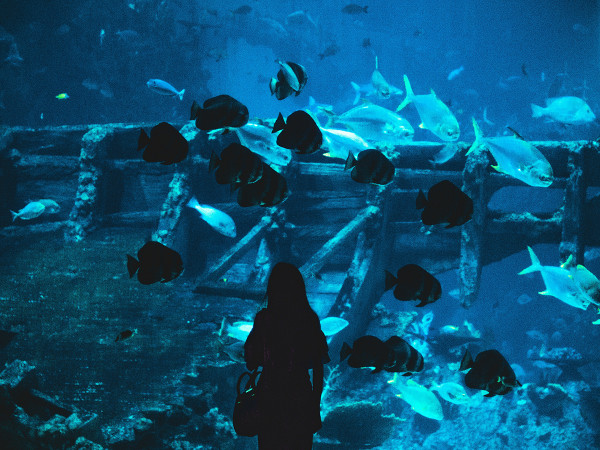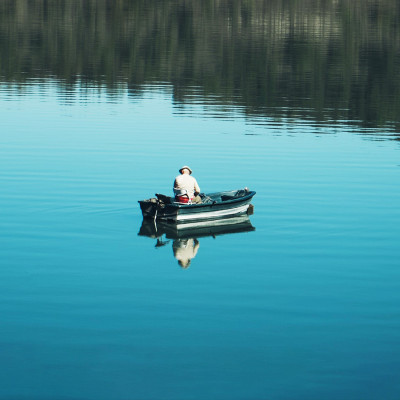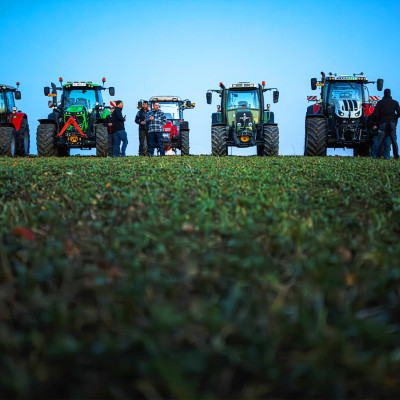Effects of climate change on Small Island Developing States
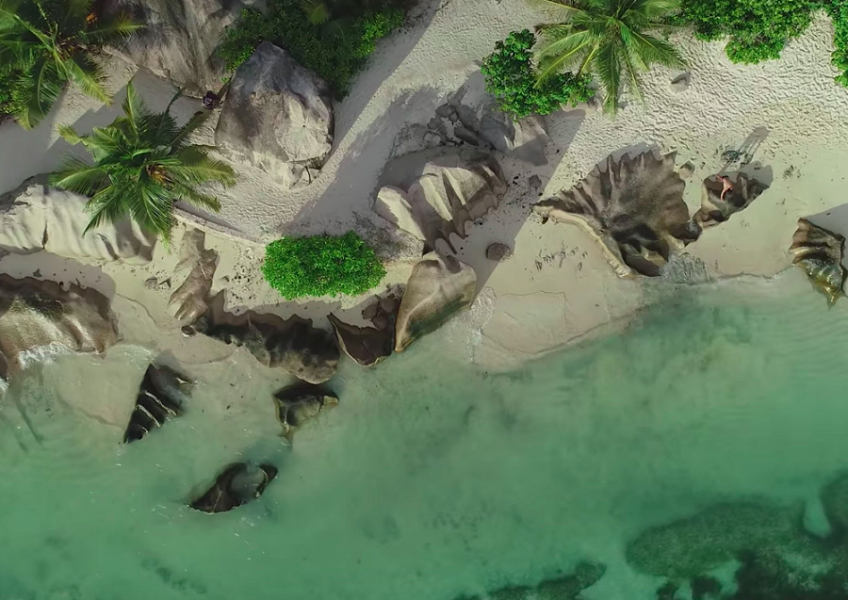
- Indice dei contenuti
- SIDS and Climate Change
- A breadth of fresh air
Small island developing states (SIDS) have been blessed with generally large ocean spaces. My country, Seychelles, is an archipelago with a total land mass of 455 km2 but its Exclusive Economic zone extends some 1.3 million square kilometers. This is the reason why I often refer to SIDS as large ocean states. The Ocean supports life and livelihoods, across the globe, more significantly in SIDS.
I observe, with interest, the growing recognition of the important role the ocean has and that many countries are turning to the ocean for their economic development in this post Covid-19 era through the development of their Blue Economy. Additionally, as the effects of global warming are being felt in many parts of the world, more people are becoming cognizant of the life support services the ocean offers to our planet and their contribution towards reducing global warming.
SIDS and Climate Change
It is ironic that the very ocean that defines and supports SIDS is the very same system that is threatening our survival and existence. This is because of the global warming effect of climate change.
While the Earth is getting warmer, many parts of the world are becoming wetter, and this is because of warmer sea surface temperatures releasing more water vapor into the atmosphere, which can make more precipitation resulting in more intense tropical cyclones, storms and other weather events like El Nino and La Nina. Coastal infrastructure, such as tourism establishments, seaports and food storage depots are becoming more vulnerable to damage and destruction. Coastal flooding has become a frequent occurrence in many of our islands, causing salinification of aquifers which contaminate potable water sources and arable land, resulting in poor or no agricultural yields in many parts of the islands. In fact, a study by the World Environment Programme has concluded that 73% of SIDS are at risk from ground water pollution, often worsened by seawater intrusion and salinization. Both the degradation of groundwater quality and growing demand of access to clean and safe water are posing threats to human health and impairing ecosystem services of great economic relevance.
As the Ocean warms, the Ocean is also acidifying. Thermal expansion has a direct influence on ocean currents, causing changes in salinity. Coral bleaching with the added effects of ocean acidification and sedimentation is affecting marine ecosystems like coral reefs and mangroves, making it less habitable to marine life. Consequently, fishermen are forced to travel even further out at sea in search of fish and other seafood. With increased adverse weather events, the windows of opportunity for fisheries, tourism and other ocean-related businesses are becoming less, severely affecting livelihoods.
The Seychelles Islands was struck by a super El Nino phenomenon in 1997/1998 which brought about a rise of between 2 to 3 degrees Celsius in seawater temperatures for few months. This resulted in devastating consequences, which are still being felt today. Marine ecosystems were badly affected, with up to 90 percent of coral reefs bleached. Stretches of pristine coasts were left vulnerable to erosion and coastal communities to flooding. If one drives along the coasts of the islands of Mahe, Praslin and La Digue today, he or she will notice the long rock barriers and concrete walls that have replaced coastal vegetation and white sandy beaches in several area of the islands. Beach degradation is so severe in some places that it is destroying coastal ecosystems. For example, important sea turtle nesting sites have been destroyed by the powerful force of the waves.
I am convinced that sea level rise remains the biggest threat to SIDS with low lying islands and vast coastal areas. SIDS from the Seychelles, Mauritius, the Comoros, Sri Lanka in the Indian Ocean to the Marshall Islands, Vanuatu and Samoa in the pacific are at risk of losing vast portions of their land with every increase in global temperature. Closer to home, the Maldives runs the risk of being erased from the face of the earth by the end of the century if sea level rise continues at its current pace. Islanders from Vanuatu and the Bay of Bengal have already been forced to move because of sea-level rise while many island communities in Alaska are contemplating a move inland due fierce storms and rapid coastal erosion.
A breadth of fresh air
SIDS, the first and most affected victims of the effects of climate change, are not the big emitters of greenhouse gases, although, we are determined to play our part in reducing greenhouse gas emissions. The United Nations (UN) declaring the year 2014 as the International Year for SIDS was an important milestone. Many islanders were and are still living in fear of their island homes being submerged – it was and still is an existential issue and the world, I argued, had to take immediate action. We joined forces on the international scene through groupings like the Association of Small Island States (AOSIS) to raise awareness and better understanding of our climate change realities and the urgency of the situation, imploring other countries to take bold actions to slow down their contributions to global warming, limiting rise in global temperatures to not more than 1.5 degrees Celsius as pledged under the Paris agreement. SIDS also used these platforms to share knowledge and best practices and learn from one another. I take pride for my humble contributions in these initiatives and the many others that followed.
The realization for me, that something had to be done, came years before the UN declaration of the international year of SIDS. Following the Rio+20 summit in 2012, as President of the Republic of Seychelles, I realized that one of the pathways to get my country out of its economic woes was diversification through sustainably managing and protecting our marine resources, ensuring food security and creating high value jobs. Financing mechanisms had to be put in place. That’s when we came up with the innovative debt swap initiative. The debt Seychelles owed to its Paris Club creditors was bought by The Nature Conservancy (TNC) which made the money available to Seychelles through the Seychelles Conservation and Climate Adaptation Trust (SEYCCAT) in the form of a loan. The Government of Seychelles makes repayments to SEYCCAT, which repays TNC. SEYCCAT also manages the debt service savings in the form of two financial mechanisms: a revolving Blue Grants Fund and the Blue Endowment, which ensures a sustainable flow of financing to support the long-term management of Seychelles’ network of MPAs, sustainable fisheries, and other activities that contribute to conservation, protection and regeneration of biodiversity, and mitigation and adaptation to climate change.
The Debt swap led to the Seychelles Blue Bond, which became a model for the world. The later was discussed and initiated in 2013 at Commonwealth Head of Government Meeting in Sri Lanka with the then Prince of Wales, now King Charles III. It is an innovative structure. Looking towards the future there is a need for more innovative finance models for the development of a regenerative blue economy to benefit of local communities and attract foreign investment and sustainable development.
There cannot be a sustainable and prosperous blue economy without healthy oceans. I always support initiatives that creates the right conditions for biodiversity regeneration and for the ocean to heal itself. Initiatives like the 30X30 movement to get countries to commit at least 30 percent of their marine space as protected areas by 2030 are healing the ocean and defending against climate change.
What we need to tackle climate change is a planet in balance where nature and communities coexist in harmony – a sustainable planet. I sincerely hope that the forthcoming 27th session of the Conference of the Parties (COP 27) in Egypt will bring about meaningful solutions in this regard, particularly the funding that has been pledged but not delivered so far to help SIDS in their fight against Climate Change. So far there has been many pledges but also many unfulfilled promises. Past Conferences of the Parties have seen a lot of “talks” but little “walks”.
I will be watching, and I know that the world will be watching.



